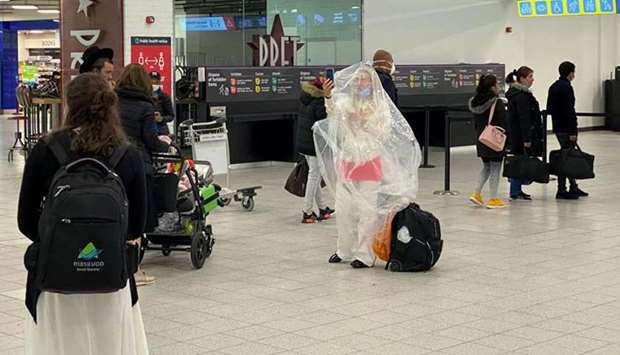Face coverings on public transport will be compulsory from June 15 in England to help stop the transmission of coronavirus as more people go back to work, Grant Shapps, the transport secretary, said yesterday.
The government will require people to wear face coverings on buses, trains, tubes and other modes of public transport from that date, when non-essential shops are likely to reopen.
However, it will not apply to people entering shops, despite the current guidance saying face coverings should be worn in enclosed public places.
Ministers are bringing in the policy due to concerns about the difficulties of physical distancing on crowded public transport, despite people being asked to use other ways of travelling, to space out, face away from each other and travel at staggered times.
A senior government source said it would help stop asymptomatic people passing the virus on to others and also “act as a visible reminder” of the need for distancing and measures such as handwashing.
Under the conditions of carriage, fines may be imposed for anyone who flouts the new rules.
In Scotland, people are also advised to wear face masks on public transport and in enclosed public spaces.
Nicola Sturgeon, Scotland’s first minister, said yesterday she was considering making the measure compulsory and it may be “inevitable” at some point, as anecdotal evidence suggests many Scots are disregarding guidance.
In Wales, wearing face coverings is a matter of personal choice, while in Northern Ireland it is recommended that people “should think about using face coverings in enclosed spaces where social distancing is not possible”.
Mick Whelan, the general secretary of ASLEF, the train drivers’ trade union, said it was a “sensible step”.
“We have been working closely with the government to ensure that agreed increases in services on Britain’s train, and Tube, network is done in a safe and controlled manner – to help spread (the number of travellers), and maintain social distancing – for the safety of passengers and staff,” he said. “The instruction to wear face coverings to help prevent the spread of the coronavirus will ease the concerns of people travelling, and working, on the transport network.”
The change in advice comes a month after the government advised people to “wear a face covering in enclosed spaces where social distancing is not always possible and they come into contact with others that they do not normally meet, for example on public transport or in some shops”.
It makes an exception for children under the age of two, who should not have their faces covered, and any children of primary age who do not have somebody with them who is supervising them.
The chief medical officer for England, Professor Chris Whitty, has repeatedly stressed that face coverings are “not a substitute” for physical distancing and urged the public not to buy surgical or medical masks needed for frontline carers, but to rely on scarves or DIY-type masks instead.
The advice also suggests public should wash their clothes regularly, as there is “some evidence that the virus can stay on fabrics”.

A passenger covered with a plastic bag is seen at Luton Airport, Luton, yesterday.
